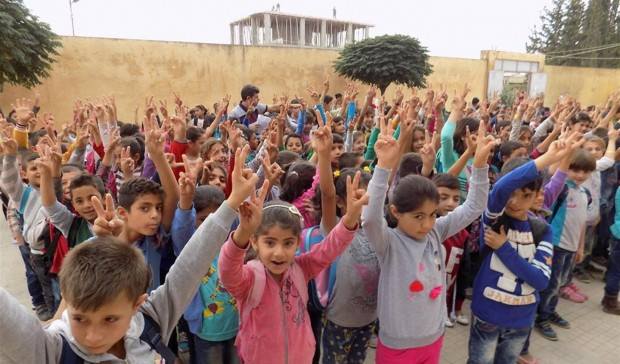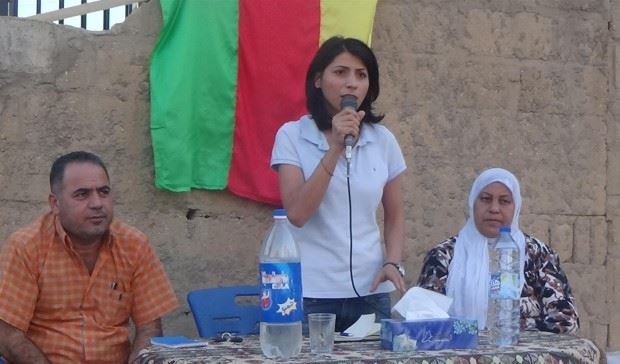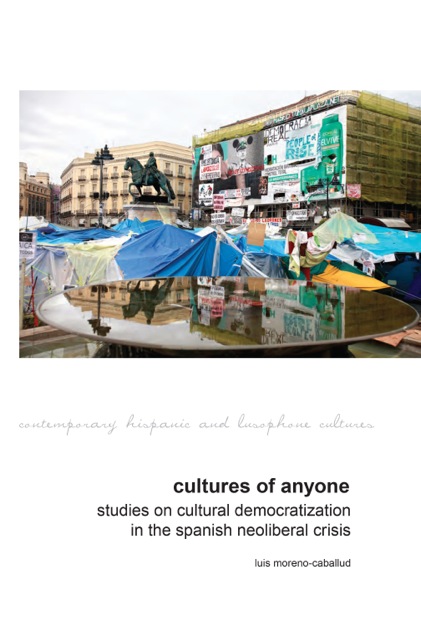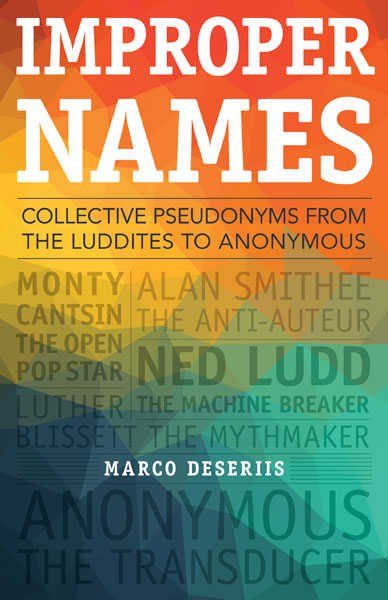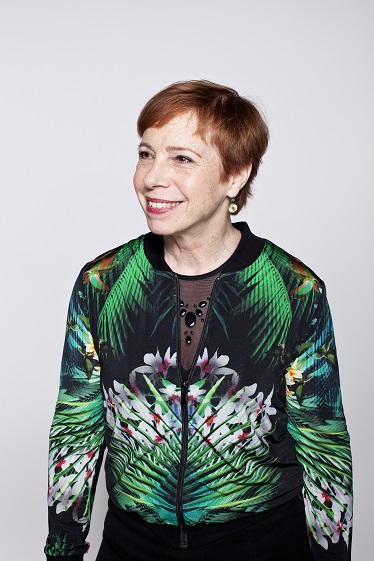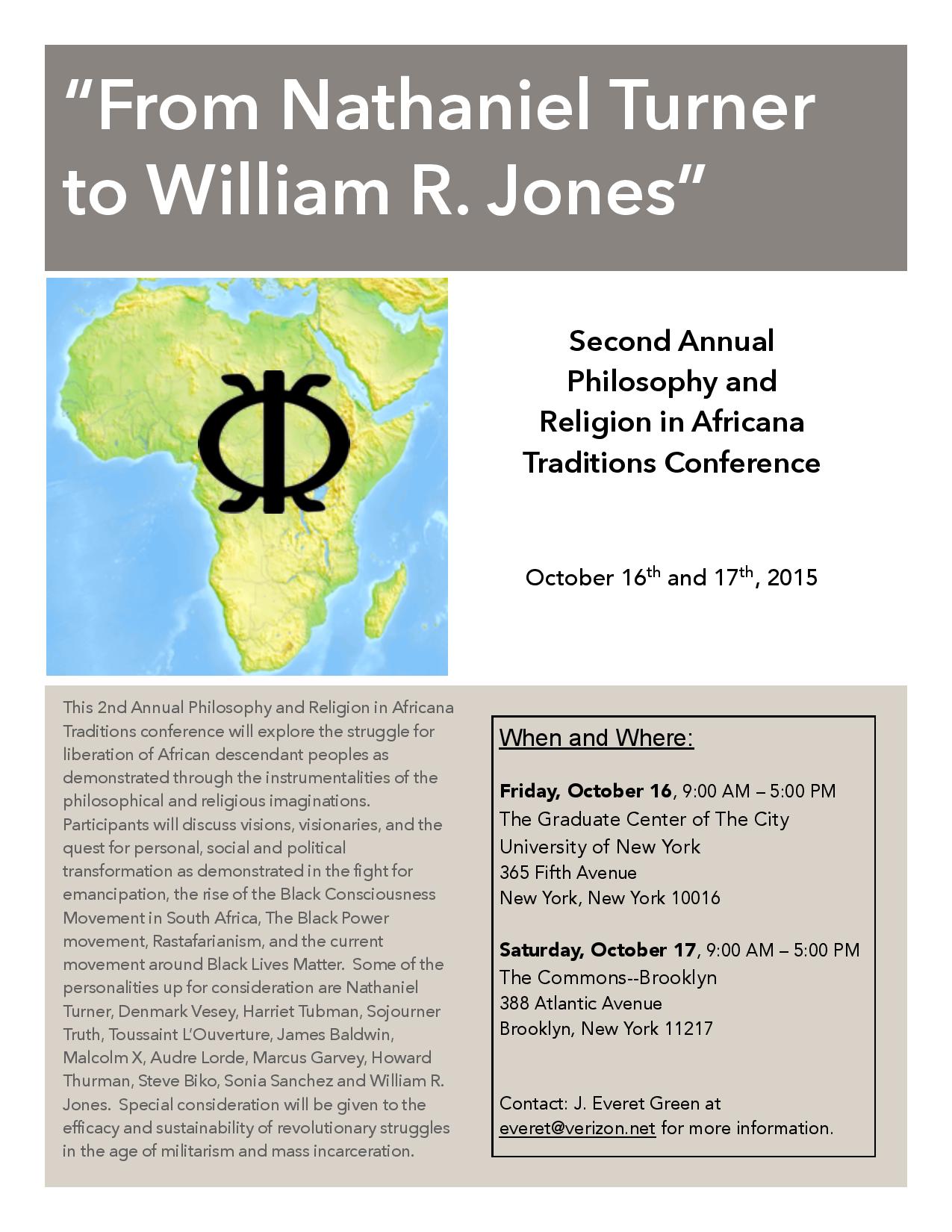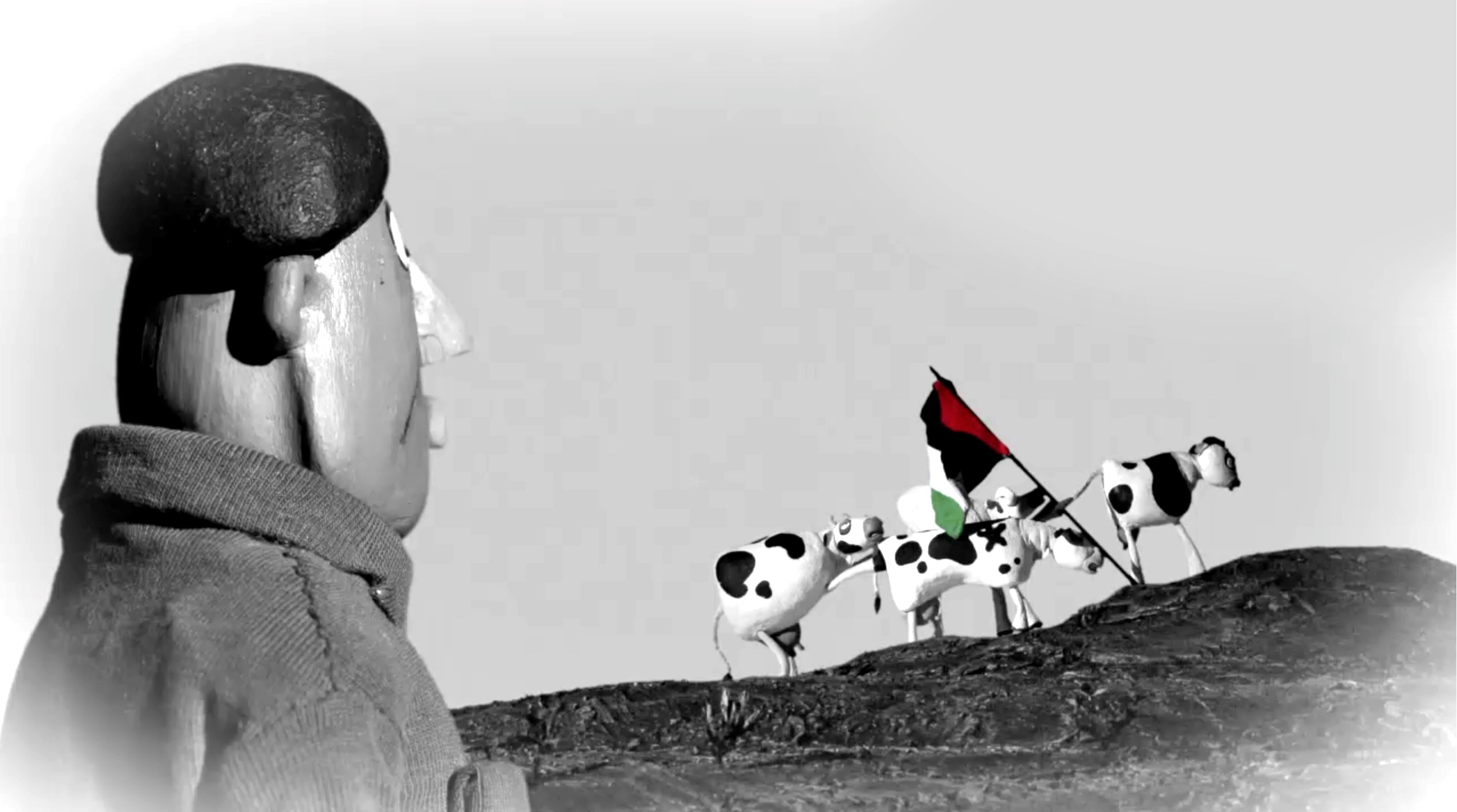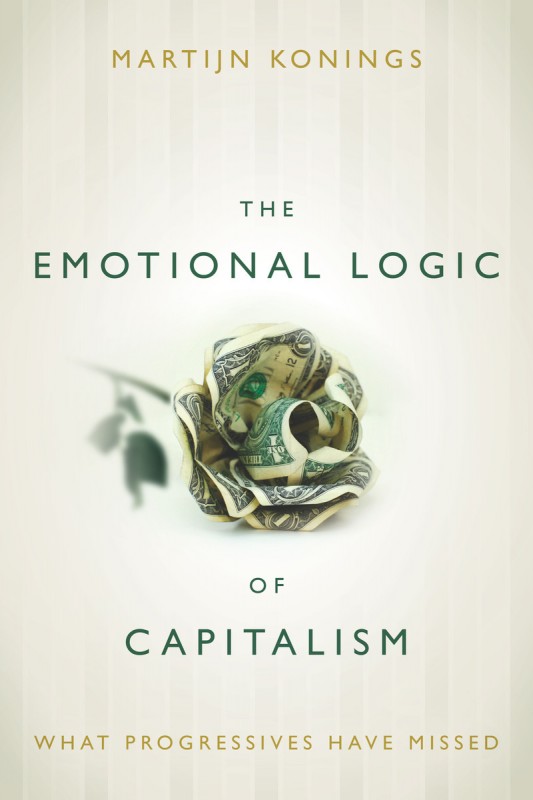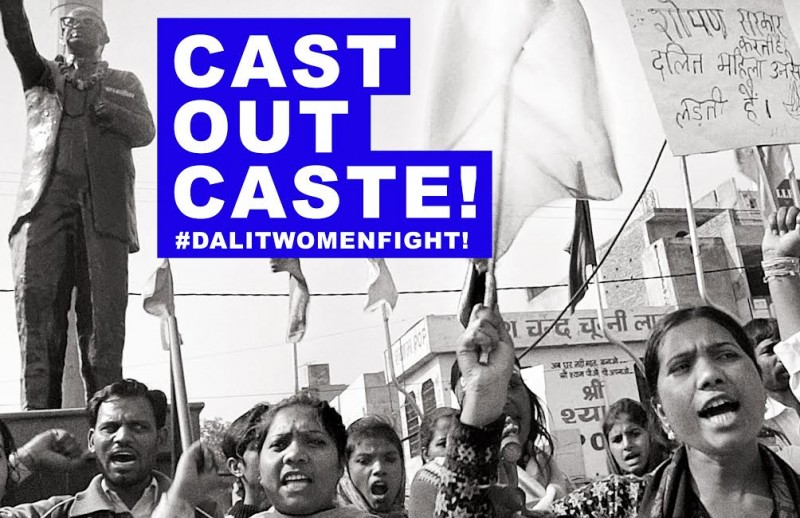The Rojava Revolution: Toward Building a Democratic Society
11/09/2015
6:00 pm - 8:00 pm
Proshansky Auditorium
Please join the Center for Place, Culture and Politics for
The Rojava Revolution: Toward Building a Democratic Society
Sinam Mohamad and David Harvey in Conversation
Monday, November 9th, 6-8:30pm, Proshansky Auditorium
The determined resistance of the Kurdish men and women in the strategic border region of Rojava (Western Kurdistan, Syria) drew worldwide attention when they successfully repelled the siege of their city of Kobane by the Islamic State (ISIS) just over a year ago. Their fight became a symbol of popular resistance to the merciless violence and horrendous atrocities committed by ISIS.
Rojava’s bottom up democratic and pluralist decision-making methods have inspired people across the world to rethink emancipatory forms of organizing social life. Despite the relentless onslaught of ISIS forces over the past months, Rojava is still standing proud and free.
Although Rojava has been a source of inspiration, little is known to outsiders of the everyday practices that sustain and grow this new way of social organization and self-government through collectives, councils and cooperatives. This conversation will focus on how people are putting up fierce resistance and defend their self-governing administration (the Democratic Autonomous Administration of Rojava) and struggle to build a democratic, non sectarian, pro gender equality, and ecologically just society.
Sinam Mohamad is the European Representative of the Rojava Self-Governing Democratic Administration and a member of the leadership of the Democratic Society Movement (known in Kurdish as Tev-Dem). She was born in Damascus Syria in 1956. She graduated from the University of Aleppo in 1981. She was nominated to the Syrian Parliament in 2003 and 2007, but because of the Kurdish identity of her party she did not enter Parliament. She is a member of the Administration of the Kurdish organization STAR UNION in Rojava, which struggles for the rights of women in Rojava. In 2011, she became the Co-President of the People Council of Western Kurdistan in Rojava . She then became a member of the High Kurdish Council of Rojava, and subsequently a member of the High political Kurdish Council in Rojava.
David Harvey is Distinguished Professor of Anthropology and Geography at the City University of New York (CUNY) and author of various books, articles, and lectures. He is the author of Seventeen Contradictions and the End of Capitalism(Profile Books, 2014), one of The Guardian’s(http://www.guardian.co.uk/books/2011/dec/02/books-christmas-presents-economics-reviews“) Best Books of 2011, The Enigma of Capital and the Crises of Capitalism (Oxford University Press, 2010). Other books include A Companion to Marx’s Capital, Limits to Capital, and Social Justice and the City. Professor Harvey has been teaching Karl Marx’s Capital for nearly 40 years. His lectures on Marx’s Volumes I and II are available for download (free) on his website. He was director of the Center for Place, Culture and Politics from 2008-2014.
This event is sponsored by the Center for Place, Culture and Politics. It is free and open to the public.
11/06 DOUBLE BOOK LAUNCH: CULTURES OF ANYONE AND IMPROPER NAMES
11/06/2015
6:00 pm - 8:00 pm
Room C201
Please join us for a double book launch
DOUBLE BOOK LAUNCH: CULTURES OF ANYONE AND IMPROPER NAMES
November 6, 2015, 6-8 PM. Room 6112.
The international wave of revolts that began with the Arab Spring, the Spanish 15M movement, and Occupy Wall Street in 2011 has had the effect of revitalizing grassroots social movements all over the world. Expressing cooperative modes of living that materialize alternatives to the competitive model of neoliberalism, these movements have also produced collaborative knowledge networks and experimented with the production of new forms of subjectivity.
Activists and researchers Luis Moreno-Caballud and Marco Deseriis, who met and became friends in the initial stages of Occupy Wall Street, have recently published two books that sum up long-term research projects investigating the knowledge networks that have emerged out of the Spanish 15-M social movement and the political use of shared pseudonyms such as Luther Blissett and Anonymous, respectively.
In this double book launch, Deseriis and Moreno-Caballud will present their work and engage in conversation on the potentiality and legacy of these radical experiments in culture and politics.
Improper Names: Collective Pseudonyms from the Luddites to Anonymous
Marco Deseriis
University of Minnesota Press, 2015
https://www.upress.umn.edu/book-division/books/improper-names
Improper Names is the first comprehensive analysis of the shared pseudonym, a collective strategy to build symbolic power that challenges established forms of political and aesthetic representation
Bridging gaps among the history of the labor movement, cinema studies, art history, media activism, and hacking, this book examines the contentious politics and the struggles for control of a shared alias from the early nineteenth century to the age of networks. Although collective pseudonyms are often invented to pursue a specific authorial, artistic, or political strategy, they are soon appropriated for different and sometimes diverging purposes. This book examines the tension arising from struggles for control of a pseudonym’s symbolic power.
After examining the use of shared pseudonyms for collective bargaining and to undermine bourgeois notions of authorship in art, the longest chapter of Improper Names is devoted to the contemporary hacktivist group Anonymous, which protests censorship and restricted access to information and information technologies.
Lastly, Deseriis examines a rich philosophical debate on the community of those who have nothing in common to conclude with a reflection on how the politics of improper names may affect contemporary anticapitalist social movements such as Occupy and 15-M.
Cultures of Anyone: Studies on Cultural Democratization in the Spanish Neoliberal Crisis
Luis Moreno-Caballud
Liverpool University Press, 2015
Freely available online at: http://www.modernlanguagesopen.org/index.php/mlo/issue/view/16
Cultures of Anyone studies the emergence of collaborative and non-hierarchical cultures in the context of the Spanish economic crisis of 2008.
It explains how peer-to-peer social networks that have arisen online and through social movements such as the Indignados have challenged a longstanding cultural tradition of intellectual elitism and capitalist technocracy in Spain. From the establishment of a technocratic and consumerist culture during the second part of the Franco dictatorship to the transition to neoliberalism that accompanied the ‘transition to democracy’, intellectuals and ‘experts’ have legitimized contemporary Spanish history as a series of unavoidable steps in a process of ‘modernization’. But when unemployment skyrocketed and a growing number of people began to feel that the consequences of this Spanish ‘modernization’ had increasingly led to precariousness, this paradigm collapsed. In the wake of Spain’s financial meltdown of 2008, new ‘cultures of anyone’ have emerged around the idea that the people affected by or involved in a situation should be the ones to participate in changing it. Growing through grassroots social movements, digital networks, and spaces traditionally reserved for ‘high culture’ and institutional politics, these cultures promote processes of empowerment and collaborative learning that allow the development of the abilities and knowledge base of ‘anyone’, regardless of their economic status or institutional affiliations.
Marco Deseriis is Assistant Professor in Media and Screen Studies at Northeastern University. A former participant in the Luther Blissett Project, Deseriis has collaborated with art-activist collectives such as 0100101110101101.org and The Yes Men. He is also the co-author of Net.Art: L’arte della Connessione (Shake, 2003 and 2008) the first Italian book on Internet art. Deseriis’ articles on social movements have appeared in The Journal of Communication Inquiry, Theory & Event, Journal of Critical Communication/Cultural Studies, Subjectivity, and Mute magazine.
Luis Moreno-Caballud is a researcher, writer, and activist. He is an Assistant Professor of Spanish Contemporary Culture at the University of Pennsylvania. He participated in the gestation of Occupy Wall Street, and now collaborates with different political groups (including Marea Granate NY), focusing mostly on building dialogues between anti-neoliberal social movements in Spain and the US. He has published articles about the Spanish 15M movement and its aftermath in several journals and magazines. He maintains the blog “Culturas de cualquiera”.
10/30: The Hand That Feeds: Migrant Workers’ Poetry, Performance, and Film
10/30/2015
6:30 pm - 8:30 pm
Martin E. Segal Theatre
Please join us for:
The Hand That Feeds: Migrant Workers’ Poetry, Performance, and Film
Friday, October 30, 2015, 6:30 PM. Martin E. Segal Theater.
Join us for a poetry reading and performance by worker writers Christine Lewis and Samantha Lee , followed by a screening of The Hand That Feeds, a documentary about the behind the scenes world of an Upper East Side bagel shop, where undocumented immigrant workers face sub-legal wages, dangerous machinery, and abusive managers who will fire them for calling in sick.
The screening will be followed by a question and answer session with stars from the film and Mahoma López, a worker featured in the film who galvanized his co-workers to form an independent union.

The event Co-sponsored by the Center for Place, Culture, and Politics (CPCP) and the Narrating Change, Changing Narratives Mellon Seminar in Public Engagement and Collaborative Research in the Humanities. This event is free and open to public.
10/22 A TURNING POINT FOR GUATEMALA? POPULAR MOVEMENTS PUT A COUNTRY—AND A COMPANY—ON TRIAL
10/22/2015
6:00 pm - 8:00 pm
Martin E. Segal Theatre
Please join us in discussion: A TURNING POINT FOR GUATEMALA? POPULAR MOVEMENTS PUT A COUNTRY—AND A COMPANY—ON TRIAL
Thursday, October 22
6:00 PM
Segal Theatre
To view the LIVESTREAM of this event: Go to videostreaming.gc.cuny.edu and click on the link in the “Live Videos” box on the upper right hand side of the page. Click on this event.
Could this year’s unprecedented urban mobilization against corruption signal a turning point for social movements in Guatemala? How are rural Guatemalans protesting the ways in which multinational corporations and private and government security forces continue to perpetuate a legacy of violence, displacement and repression in the countryside? What are the connections between these organizing efforts?
From September’s headline-grabbing indictment of Guatemala’s President on corruption charges, to ongoing rural opposition to extractive industries, we’ll hear directly from Guatemalans about this historic moment and how the country’s disparate social movements can work together to achieve human rights and justice.
Llan Carlos Dávila, a community leader and activist, and member of the Diocesan Committee in Defense of Nature (CODIDENA), will speak about the creative and resilient ways people in his region are opposing a destructive silver mining project led by U.S. and Canadian-owned Tahoe Resources. Llan Carlos is visiting NYC as part of a U.S. speaking tour, “Tahoe on Trial,” organized by the Network in Solidarity with the People of Guatemala (NISGUA).
Gabriela Alvarez Castañeda of Guatemala Florecerás, a NYC-based activist collective, will discuss the group’s local organizing in support of #RenunciaYa, a campaign led by tens of thousands of Guatemalans demanding the resignation of President Otto Pérez Molina and an end to government corruption.
Pamela Yates will be the event’s discussant. Pamela is a co-founder and the creative director of Skylight Pictures. In 2011, she directed the documentary film Granito: How to Nail a Dictator, which was used as key forensic evidence in the Ríos Montt genocide conviction in Guatemala. She is currently working on the film 500 Years, the third in a trilogy that explores the battle for the national narrative in present-day Guatemala.
Co-sponsored by CUNY’s Center for Place, Culture and Politics, Lehman College’s Center for Human Rights and Peace Studies, CUNY’s Center for Latin American, Caribbean and Latino Studies, and Skylight Pictures.
10/19 ‘Sweet&Salt: Water and the Dutch’
10/19/2015
6:30 pm - 8:30 pm
Room C201
Please join us for a talk by Tracy Metz, introduced by Ashley Dawson
‘Sweet&Salt: Water and the Dutch’
October 19, 6:30 PM room c201
The Dutch are past masters at keeping the water out of their low-lying country: in the Netherlands the art of water management was born of pure necessity. Over half the nation’s income is earned below sea level, and the attitude has always been that long-term prevention is better than repair after the fact. Water was the enemy and man exercised dominion over it, using all the increasingly sophisticated technology at his disposal. But the climate is changing and the Dutch, ever at the forefront of water innovation, are discovering that working together with nature is in the long run a safer bet. Urban designers , landscape architects and engineers are collaborating on ways to store water and avert flooding while at the same time making the cities cooler and more attractive. These ideas and designs – ‘the Dutch approach’ to the water-driven makeover of the landscape – are drawing interest all over the world, as many regions and urban areas find themselves confronted with water, both too little of it and too much.
Tracy Metz is a journalist, author and presenter originally from California but based in Amsterdam, the Netherlands. Her most recent book is ‘Sweet&Salt: Water and the Dutch’, about the innovative approach the Netherlands are now taking to dealing with water. She is the director of the John Adams Institute, the independent podium for American culture in the Netherlands. She also has a monthly live talkshow and digital magazine called Stadsleven, ‘City Life’, about the issues – including water – now confronting the world’s cities. She writes for newspapers and magazines in the Netherlands and is an international correspondent for Architectural Record. Following her Loeb Fellowship at Harvard’s Graduate School of Design she was appointed a visiting fellow. She speaks frequently on water issues in the Netherlands and abroad. www.tracymetz.nl | www.john-adams.nl | www.stadslevenamsterdam.nl
Ashley Dawson is Professor of English at the City University of New York’s Graduate Center and at the College of Staten Island/CUNY. He is the author of Extinction: A Radical History (forthcoming from O/R Press), The Routledge Concise History of Twentieth-Century British Literature (2013) and Mongrel Nation: Diasporic Culture and the Making of Postcolonial Britain (Michigan, 2007). He is also co-editor of four essay collections: Against Apartheid: The Case for Boycotting Israeli Universities (Haymarket, forthcoming), Democracy, the State, and the Struggle for Global Justice (Routledge, 2009); Dangerous Professors: Academic Freedom and the National Security Campus (Michigan, 2009); and Exceptional State: Contemporary U.S. Culture and the New Imperialism (Duke, 2007). A former editor of Social Text Online[socialtextjournal.org] and of the AAUP’s Journal of Academic Freedom[aaup.org], he is currently completing work on a book entitled Extreme City: Climate Change and the Urban Future for Verso Press.
This event is sponsored by the Center for Place, Culture and Politics. It is free and open to the public.
“From Nathaniel Turner to William R. Jones;” The second annual Philosophy and Religion in Africana Traditions Conference
10/16/2015
9:00 am - 5:00 pm
Elebash Recital Hall
Friday, OCTOBER 16
9:00am — 5:00pm
CUNY: The Graduate Center
ELEBASH RECITAL HALL
365 Fifth Avenue
New York, New York 10016
To view LIVESTREAM on Friday: Go to videostreaming.gc.cuny.edu and click on the link in the “Live Videos” box on the upper right hand side of the page. **We have been experiencing some difficulties with livestreaming this week. Apologies of it is not working.
MORNING SESSION
9:20am – 12:20am
9:25am – 9:50am
Greetings and Opening Statement: J. Everet Green, Mercy College
Greetings: Mary Taylor, CUNY Graduate Center
10:00am – 10:40am
Biko and the Liberatory Potential of Non-racialism and Post-racialism
Speaker: Kimberly Ann Harris, Pennsylvania State University
Chair: Sara Mokuria, Senior Research Associate, UT Dallas Institute for Urban Policy Research
10: 45am – 11:25am
William R. Jones Philosophy of Liberation
Speaker: Brittany O’Neal, Ph.D., Long Island University – Brooklyn
Chair: Zay D. Green, Humanitas, Independent Scholar
11:30am – 12:00pm
James H. Cone and the Bible as History Book: Philosophical Assessment
Speaker: John H. McClendon, III, Ph.D., Michigan State University
LUNCH BREAK
12:00pm – 1:15pm
AFTERNOON SESSION
1:20pm – 5:00pm
1:20pm – 1: 30pm
Greetings and Introduction: J. Everet Green
1:40pm – 2:30pm
Navigating Black Identity, Politics, and Consciousness: A Life-Time of Reflection
Speaker: Mathylde Frontus, Ph.D., LMSW
Chair: Aileen Mokuria, William M. Raines High School
2:35pm – 3:20pm
Religion in 18th and 19th Century Intellectuals of African Ancestry
Speaker: Albert G. Mosley, Ph.D., Smith College
Chair: Brittany O’Neal, Ph.D., Long Island University – Brooklyn
3:25pm – 4:15pm
“Hubert Harrison: ‘The Voice of Harlem Radicalism,’” A Slide Presentation/Talk by Dr. Jeffrey B. Perry
Speaker: Jeffrey B. Perry, Ph.D., Independent Scholar
Chair: Julie Siestreem
4:20pm – 5:00pm
MUSICAL PRESENTATION
Performers:
• Kerry M. Brown, M.A., Philosophy, Independent Scholar/Multi Reed Woodwind Musician/Performance Artist
• Albert G. Mosley, Ph.D., Professor of Philosophy, Smith College
Saturday, OCTOBER 17 *note that this is NOT at the GRADUATE CENTER!
9:00am — 5:00pm
THE COMMONS
388 Atlantic Avenue
Brooklyn, New York 11217
MORNING SESSION
9:00am – 12:20pm
9:15am – 9:30am
Welcome: J. Everet Green
9:30am – 10:15am
Racism: An Inquisition of Philosophy and History vs. His/Her-Story, Using “Hatata” as a Prism
Speaker: Richard F. Ford Sr., Independent Scholar
Chair: Zay D. Green, Humanitas
10: 20am – 11:15am
My Father was Killed by the Police: Personal Reflections on Police and Power in the US
Speaker: Sara Mokuria, M.A., Senior Research Associate, UT Dallas Institute for Urban Policy Research
Chair: Julie Siestreem
11:20am – 12:15pm
The Meaning of the Black Spiritual: Music as an Existential Weapon
Speaker: Kerry M. Brown, M.A., Philosophy, Independent Scholar/Multi Reed Woodwind Musician/Performance Artist
Chair: Aileen Mokuria, William M. Raines High School
LUNCH
12:20pm – 1:30pm
AFTERNOON SESSION
1:30pm – 5:00pm
1:30pm – 2:30pm
On Rastafari Political Theology
Speaker: Neil Roberts, Ph.D., Chair, Department of Religion, Williams College
Chair: Kimberly Ann Harris, Penn State University
2:35pm – 3:30pm
Rending the Veil: How do we See each Other?
Speaker: Professor Al Prettyman, Publisher, Co-founder of the Society for the Study of Africana Philosophy
Chair: Brittany O’Neal, Ph.D., Long Island University – Brooklyn
3:35pm – 4:15pm
The Values of Pluralism and Naturalism for Black Humanity
Speaker: Professor Damion Scott, John Jay College, CUNY
Chair: J. Everet Green, Mercy College
4:20pm – 4:50pm
Discussion: Philosophy and Religion in Africana Traditions
Zay D. Green, Neil Roberts, Albert Mosley
*This conference is sponsored by the
Center for Place, Culture, and Politics at the CUNY Graduate Center.*
Special thanks to Mary Taylor at the Center for Place, Culture, and Politics for working assiduously behind the scene to make this event possible and to Professor Brittany O’Neal in assisting with the design of the announcement and the program. Special thanks also to Munayem Mayenin of London, UK for his support.
This event is sponsored by the Center for Place, Culture and Politics. It is free and open to the public.
10/13 Film Screening: THE WANTED 18
10/13/2015
6:00 pm - 9:00 pm
Martin E. Segal Theatre
Please join us in Film Screening: THE WANTED 18 Directed by Amer Shomali and Paul Cowan
Tuesday, October 13
6:00 PM
Martin E. Segal Theatre
Humorous and thought provoking, The Wanted 18 shows the power of mass mobilization and nonviolent resistance to the Israeli occupation during the First Intifada. The film tells the story of 18 dairy cows being brought to the West Bank town of Beit Sahour, as part of a self-sufficiency movement, which were then declared a security threat to the state of Israel. Blending stop-motion animation and graphic novel cartoons with archival footage and interviews, the film uses humor to get at a serious subject. This is a poignant film about nation-building from the bottom up, by the people, not the politicians. Variety called the film ‘mind-opening’ & ‘ingenious.’
Discussants:
Riham Barghouti (Adalah-NY)
Christopher Stone (Hunter College & The Graduate Center)
Emma Alpert (Just Vision)
The screening is co-sponsored by: The Center for Place, Culture and Politics, CUNY Graduate Center, MEMEAC, CUNY Graduate Center and The Committee on Globalization and Social Change, CUNY Graduate Center. This event is free and open to the public.
10/6 BOOK PARTY: This Muslim American Life
10/06/2015
6:30 pm - 8:30 pm
Room 9204
Please join us in celebrating Moustafa Bayoumi’s new book This Muslim American Life; Dispatches from the War on Terror
Tuesday, October 6
6:30-8:30 PM
Room 9204
Over the last few years, Moustafa Bayoumi has been an extra in Sex and the City 2 playing a generic Arab, a terrorist suspect (or at least his namesake “Mustafa Bayoumi” was) in a detective novel, the subject of a trumped-up controversy because a book he had written was seen by right-wing media as pushing an “anti-American, pro-Islam” agenda, and was asked by a U.S. citizenship officer to drop his middle name of Mohamed.
Others have endured far worse fates. Sweeping arrests following the terrorist attacks of
September 11, 2001 led to the incarceration and deportation of thousands of Arabs and
Muslims, based almost solely on their national origin and immigration status. The NYPD, with help from the CIA, has aggressively spied on Muslims in the New York area as they go about their ordinary lives, from noting where they get their hair cut to eavesdropping on conversations in cafés. In This Muslim American Life, Bayoumi reveals what the War on Terror looks like from the vantage point of Muslim Americans, highlighting the profound effect this surveillance has had on how they live their lives. To be a Muslim American today often means to exist in an absurd space between exotic and dangerous, victim and villain, simply because of the assumptions people carry about you. In gripping essays, Bayoumi exposes how contemporary politics, movies, novels, media experts and more have together produced a culture of fear and suspicion that not only willfully forgets the Muslim-American past, but also threatens all of our civil liberties in the present.
Moustafa Bayoumi is the author of How Does It Feel To Be a Problem? Being Young and Arab in America, which won an American Book Award and the Arab American Book Award for Nonfiction. He is the editor of Midnight on the Mavi Marmara and co-editor of The Edward Said Reader. He is Professor of English at Brooklyn College, City University of New York (CUNY).
Jeanne Theoharis (Distinguished Professor of Political Science, Brooklyn C0llege) and Arun Kundnani (author of The Muslims Are Coming: Islamophobia, Extremism, and the Domestic War on Terror) will be discussants.
This event is free and open to the public.
9/29: BOOK TALK: The Emotional Logic of Capitalism
09/29/2015
6:00 pm - 8:00 pm
Room 6112
The Emotional Logic of Capitalism
What Progressives Have Missed
A book talk by MARTIJN KONINGS
TUESDAY, SEPTEMBER 29
6PM
SOCIOLOGY LOUNGE, ROOM 6112
The capitalist market, progressives bemoan, is a cold monster: it disrupts social bonds, erodes emotional attachments, and imposes an abstract utilitarian rationality. But what if such hallowed critiques are completely misleading? This book argues that the production of new sources of faith and enchantment is crucial to the dynamics of the capitalist economy. Distinctively secular patterns of attraction and attachment give modern institutions a binding force that was not available to more traditional forms of rule. Elaborating his alternative approach through an engagement with the semiotics of money and the genealogy of economy, Martijn Konings uncovers capitalism’s emotional and theological content in order to understand the paradoxical sources of cohesion and legitimacy that it commands. In developing this perspective, he draws on pragmatist thought to rework and revitalize the Marxist critique of capitalism.


